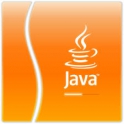Users Online
· Guests Online: 9
· Members Online: 0
· Total Members: 188
· Newest Member: meenachowdary055
· Members Online: 0
· Total Members: 188
· Newest Member: meenachowdary055
Forum Threads
Newest Threads
No Threads created
Hottest Threads
No Threads created
Latest Articles
DEMO - Java Essential Training 2016
 DEMO - Java Essential Training 2016
DEMO - Java Essential Training 2016Java Courses |
| Categories | Most Recent | Top Rated | Popular Courses |
| Uploader | Date Added | Views | Rating | |
| Superadmin | 22.05.18 | 1,200 | No Rating | |
| Description | ||||
| f you want to build applications for mobile devices, desktop computers, or the web, you need to know Java. This course provides the foundation for learning Java SE (Standard Edition), so you can build your first apps or start exploring the language on your own. Author David Gassner shows how to install Java and the IntelliJ IDEA IDE, and start working with variables, data types, keywords, and other critical language components. He also helps you control program flow with conditional logic and loops, store data with the Java Collections Framework, and understand how Java implements object oriented coding principles Topics Include Understanding the history and principles of Java Installing Java, IntelliJ IDEA, and BlueJ Creating a Java project Working with variables, values, and expressions Working with object data types Building, comparing, and parsing strings Debugging and exception handling Creating loops and reusable code Passing arguments by reference or value Using simple and complex arrays Creating custom classes Understanding inheritance and polymorphism Managing files with Java libraries Documenting code with Javadoc Packaging classes in JAR files Lesson Description Section 1 Introduction Lesson 01 Welcome Lesson 02 In this course for you Lesson 03 Using the Exercise Files Section 2 What is Java Lesson 04 History of Java Lesson 05 Principles and Components of Java Lesson 06 Java Syntax and Compilation Lesson 07 Memory Management and garbage collection Lesson 08 Choosing a Development Environment Section 3 Installing the Software Lesson 09 Intalling Java on Windows Lesson 10 Installing Java on OS X Lesson 11 Installing IntelliJ IDEA on Windows Lesson 12 Installing IntelliJ IDEA on OS X Lesson 13 Installing BlueJ Section 4 Getting Started Lesson 14 Hello World Lesson 15 Passing Arguments to the console Application Lesson 16 Organizing Java Classes in Packages Lesson 17 Creating a Java Project in IntelliJ IDEA Lesson 18 Taking a Tour of IntelliJ IDEA Lesson 19 Creating a Java Project in BlueJ Lesson 20 Using the Java API Documentation Section 5 Working with Variables Lesson 21 Working with primitive variables Lesson 22 Declarig and initializing numeric primitives Lesson 23 Representing Currency values in Big Decimal Lesson 24 Converting numeric values Lesson 25 Using mathematical operators and the Math class Lesson 26 Working with Boolean values and expressions Lesson 27 Working with character Values Lesson 28 Using Java Operators Section 6 Working with Objects Lesson 29 Working with Object Data Types Lesson 30 Using the String class Lesson 31 Converting primitive values to strings Lesson 32 Building a string from multiple values Lesson 33 Comparing string values Lesson 34 Formatting numeric values as strings Lesson 35 Parsing string values Lesson 36 Working with dates and times Lesson 37 Challenge: Creating a simple Calculator Application Lesson 38 Solution:Creating a simple Calculator Application Section 7 Exception Handling and Debugging Lesson 39 Understanding Syntax errors vs Runtime Exceptions Lesson 40 Debugging with IntelliJ IDEA Lesson 41 Handling exceptions with try/catch Lesson 42 Creating multiple catch blocks Lesson 43 Throwing custom exceptions Section 8 Managing Program Flow Lesson 44 Programming Conditional Logic Lesson 45 Using the swtich Statement Lesson 46 Creating Loop Code Blocks Lesson 47 Creating resuable code with methods Lesson 48 Overloading methods with different signatures Lesson 49 Passing arguments by reference or by value Lesson 50 Creating a more complex calculator application Lesson 51 Solution: Creating a more complex calculator application Section 9 Using Data Collections Lesson 52 Using simple arrays Lesson 53 Using two Dimensional Arrays Lesson 54 Managing resizable arrays with ArrayList Lesson 55 Managing unordered data with HashMap Lesson 56 Logging through collections with iterators and for-each Section 10 Creating Custom Classes Lesson 57 Understanding encapsulation Lesson 58 Creating and instantiating custom classes Lesson 59 Creating nested and anonymous classes Lesson 60 Visualizing class relationships Lesson 61 Storing data in instance variables Lesson 62 Declaring instance and static methods Lesson 63 Using constructor methods Lesson 64 Using static variables as constants Lesson 65 Declaring and using enum types Section 11 Working with inheritance Lesson 66 Understanding inheritance and polymorphism Lesson 67 Extending classes and overriding methods Lesson 68 Creating and implementing interfaces Lesson 69 Using abstract classes and methods Section 12 Using Common Java Libraries Lesson 70 Managing Files with Original File Class Lesson 71 Managing Files with Java 7s new IO Library Lesson 72 Managing files with Apache Commons FileUtils Lesson 73 Reading a text file over the Internet Section 13 Using Common Java Libraries Lesson 74 Documenting code with Javadoc Lesson 75 Packaging classes in JAR files | ||||
Ratings
Comments
No Comments have been Posted.
Post Comment
Please Login to Post a Comment.
